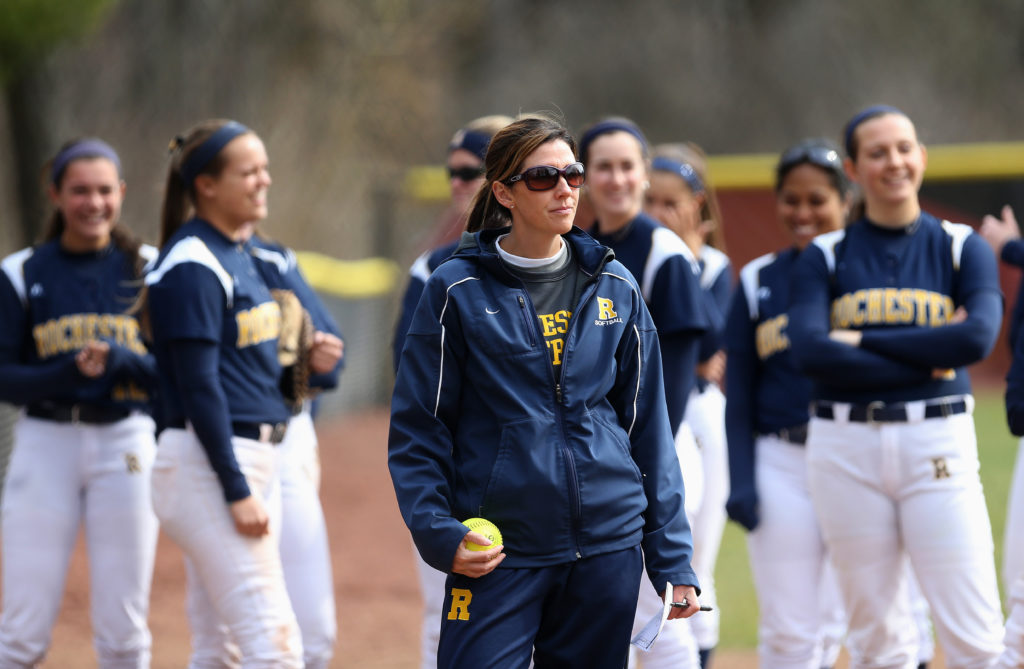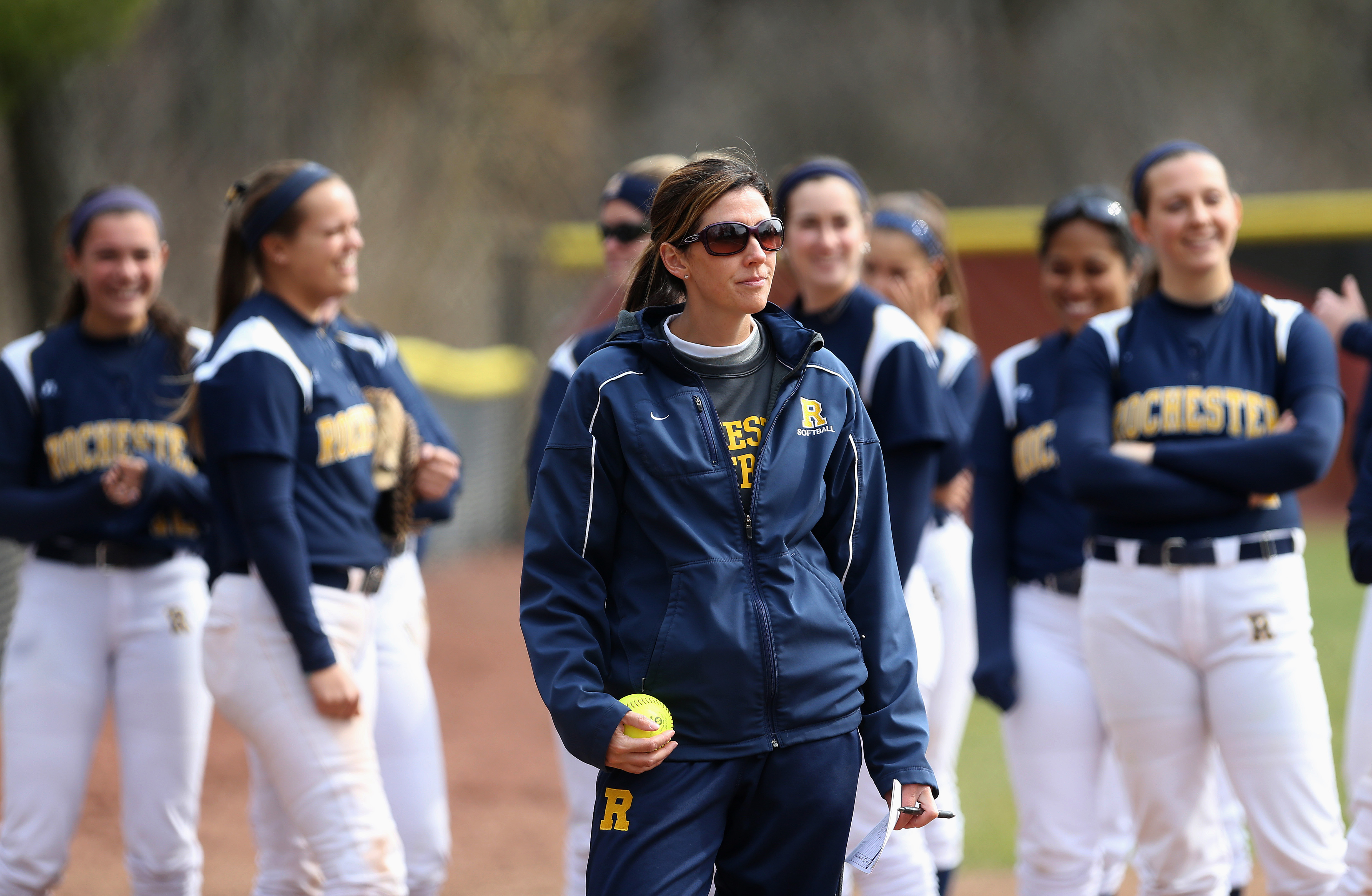When she’s not guiding the UR Softball program to another Liberty League Playoff or NCAA postseason appearance, coach Margaret Yerdon-Grange is consumed by another interest: Gender & Women’s Studies, for which she received a graduate certificate from the Susan B. Anthony Institute in 2009.
Yerdon-Grange’s mother, a former phys-ed teacher and softball coach, sparked her daughter’s interest in gender studies at both an undergraduate and graduate level, and prompted her to take up baseball at a young age.
“There wasn’t really any softball for young girls where I lived at that time,” Yerdon-Grange said.
Upon the conclusion of playing Little League, she finally made the switch to softball, a female-dominated sport that would become an integral part of her eventual career as a college coach.
Being involved in travel softball, pondering the idea of a potential future in the sport, Yerdon-Grange looked to Division I to continue competing after high school.
“Recruiting was very different back then, and without email, you had to go to camps or send in video through the mail,” she said. “[…] it was harder to get noticed.”
After writing to numerous coaches and seeing an older friend and teammate attend, she made the ultimate decision to continue her studies and softball career at Binghamton University.
In the classroom, a particularly passionate professor and a series of sociology classes played a role in sparking her interest in feminism and its place in society.
“I took a class called ‘Women’s Work,’ and it was very eye-opening to see how much women were oppressed in the workplace,” Yerdon-Grange said.
She also commented on her mother’s influence when explaining her decision to become involved in this particular area of study.
“My mom has always been very open-minded,” she said. “She is in her 60s and is from the Baby-Boomer era, where an opinionated woman was not always well-received […] she was a pioneer in sports and feminism.”
After receiving her Master’s Degree in Social Sciences at Binghamton, she went on to pursue the graduate certificate and other graduate work, which included an assistantship in which she would be responsible for teaching a class on women in sports.
“Women have come a long way,” she said, “but still have a lot of obstacles to overcome in sports.”
When asked about how her education helps with her coaching position, she spoke about stressing to her athletes the importance of standing up for what is right—specifically, becoming more confident in male-dominated environments.
“Some females are not comfortable going into the varsity weight room when another men’s team is in there,” she said. “Going into a gym and not feeling intimidated is a valuable thing to walk away from, and in this profession, some female coaches are not willing to stand up for things like that.”
She views her team’s main facility, housed in the distant Southside fields, as a blessing.
“The distance of the field from campus is a product of when the program started,” she said. “In the late 90s, softball turned varsity, and there was no space on campus. I think we have a great facility, and the department as put a ton of money into it […] the program is going in a good direction.”
Female softball players constantly experience the comparison of their sport to baseball, and, in mentioning the infamous debate about the two, Yerdon-Grange remains equally as idealistic.
“I think there’s certainly women that would prefer to play baseball,” she said. “[…] for me, softball is a way more entertaining sport because it’s faster. Physically, females are capable of playing baseball—it’s more of a question of whether they want to, but it’s definitely a possibility.”
Yerdon-Grange is currently pursuing her Ph.D. in education theory and policy, and recently presented a paper at a Sport, Sexuality, & Culture Conference about the objectification of women in sport. She is now looking ahead to the new year to begin training for the fast-approaching 2017 season.


